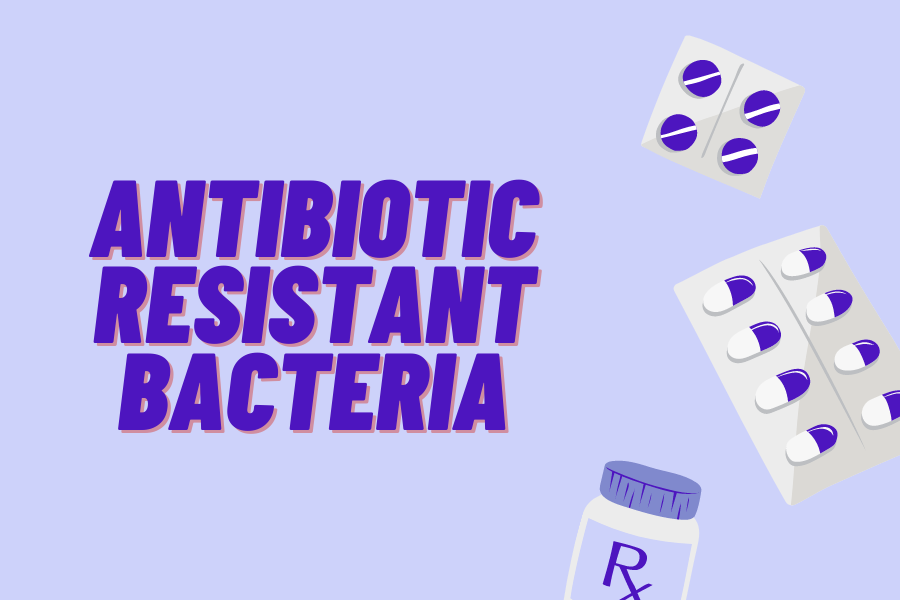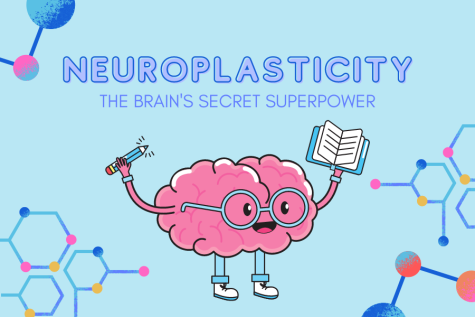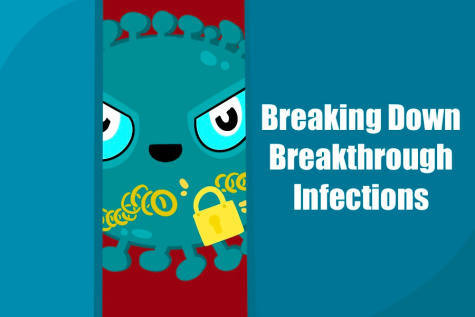The Next Global Health Catastrophe: Antibiotic-Resistant Bacteria
A new reality
Picture this: you go to the doctor with a sore throat, and they say you have contracted strep throat. On instinct, you are relieved. You have had strep throat before, and it is usually a mild illness that is easily treatable with antibiotics. Suddenly, the doctor tells you that the strain of strep throat that you are sick with does not respond to antibiotics ─ you won’t be feeling better anytime soon, and you might suffer from pneumonia, organ failure, heart issues, life-threatening skin diseases, limb amputations, or even death!
This situation is a reality for the 2.8 million people in the United States that suffer as a result of antibiotic-resistant bacteria each year. Antibiotic-resistant bacteria can affect people of all ages, and they cause the death of 35,000 Americans annually. This issue is being exacerbated by the overuse of antibiotics, and scientists are working tirelessly to find new methods of treatment for antibiotic-resistant bacteria.
What is an antibiotic? How do bacteria become resistant to antibiotics?
Antibiotics, which are used to treat bacterial infections, have been an essential part of our healthcare system since the invention of penicillin in 1938. Since then, scientists have relied on these drugs to combat infections caused by bacteria such as strep throat, gonorrhea, and tuberculosis.
Same as in natural selection, in which the organisms with the most advantageous adaptations survive, each time an antibiotic is administered, a small number of powerful, antibiotic-resistant bacteria remain. The leftover bacteria reproduce, causing the infection to persist. Humans then further improve their drugs to get rid of this strong bacteria, until only superbugs, which are resistant to all antibiotics, survive and multiply.
Lysin therapy: promising new technology to fight antibiotic resistance
Fortunately, new technology is being developed that harnesses the power of bacteriophages, which are viruses with an unparalleled ability to destroy bacteria. When bacteriophages attack bacteria, they replicate and release lysin enzymes inside of the cell. Lysin enzymes sever the cell wall, effectively killing the bacteria.
The biotechnology company ContraFect has been testing lysin enzymes manipulated to target bacteria such as methicillin-resistant Staphylococcus aureus (S. aureus), or MRSA. Although the majority of MRSA cases are not serious, the condition does not respond to antibiotics and when it spreads to the lungs, it can cause the fatal disease bacteremia. Contracting this disease is especially dangerous for patients already suffering from other illnesses.
The study ContraFect performed randomly gave 116 individuals antibiotic treatment alongside either a placebo or the lysin enzyme created to fight MRSA, exebacase. One-third of these people already had MRSA, and within fourteen days, it was found that those who received lysin therapy were 40% more likely to respond to antibiotic treatment. The results of this study shows that lysin therapy, specifically, exebacase, could be instrumental in the fight against antibiotic-resistant bacteria.
This past year, we have experienced the consequences of a world ill-prepared for public health crises. Superbugs pose a similar threat to our everyday lives, and it is important that new technologies such as lysin therapy are explored. Luckily, the cutting-edge research being performed today provides hope for a better future.
Sources
“Antibiotic Resistance.” World Health Organization, www.who.int/news-room/fact-sheets/detail/antibiotic-resistance.
“Discovery and Development of Penicillin.” ACS Chemistry for Life, www.acs.org/content/acs/en/
education/whatischemistry/landmarks/flemingpenicillin.html
“Invasive Group A Strep Fact Sheet.” Pennsylvania Department of Health, www.health.pa.gov/topics/Documents/Diseases%20and%
20Conditions/Group%20A%20Strep.pdf.
“Lysin therapy offers new hope for fighting drug-resistant bacteria.” The Rockefeller University, www.rockefeller.edu/news/24920-lysin-therapy-offers-new-hope-fighting-drug-resistant-bacteria/












